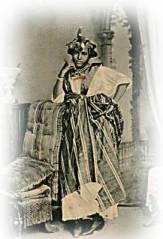Introduction to Barbados Genealogy
Welcome to Barbados genealogy which is a template for researching Caribbean genealogy. You will find here tips for doing research in a slave society where names are not always what they seem. It is a world of parallel families where siblings from different mothers carry the same first names and sometimes the legitimate branch becomes unrecognisable while the extraneous branch becomes prominent
Caribbean genealogical research is not straightforward; so be prepared to search many families to find the missing link to your ancestry. You will find that the name given on a marriage or death record is very often not the name given at birth whether as a Christian name or a family name. This therefore necessitates access to all documents. Wills and deeds are some of the most important documents. Under the page entitled Memorial of the Manumitted which is extracted from several sources available at the Barbados Department of Archives and the microfilmed Slave Registers at the University of the West Indies, Cave Hill, you will find names of free coloured people.
In tracing ancestry where there is a definite gap or stumbling block one has to consider the factors of race, illegitimacy and colour as to why there is no record of great-great-grandpa or great-great-grandma in the islands.
On several websites you will find information on researching ancestry in the Caribbean and what documents are available to the public. However, the most up-to-date guide is that provided by Mrs. Geraldine Lane’s book – Tracing Ancestors in Barbados.
The Barbados Department of Archives can be contacted at archives@sunbeach.net.
Tips on researching Caribbean Genealogy
- Keep an open mind. A slave was a chattel and could only be released legally by an owner.
- Manumission deeds often neglect the surnames of the persons being manumitted so that it is important to know their previous owners. People often sold their relatives in trust to a mariner or businessman visiting Great Britain or other colonies in order to have them manumitted. Once you have found out the name of the previous owner then you can double check with the baptismal records which often show an adult baptism or a baptism with only a mother or no parents. Next, search the marriage record under the surnames with which your family is familiar, bearing in mind that it is the father’s surname which was requested by the priest, not the baptismal surname.
- Oral history is important so get as much input as you can from older members of the family
- Middle names that are Surnames which pass from generation to generation are clues – a genealogical map. E.g. Harrison Benn may indicate that an unrecorded parent who was entitled to the name Harrison as the child of a Harrison is at the start of the recorded history.
- First names and nicknames are also an indicator as to ethnic origin.
- Slaves with English first names were referred to in the diminutive: Harry for Henry, Betty or Betsy for Elizabeth; Kitty for Christian or Catherine; Carr for Caroline; Sally for Sarah; Jimmy for James; Molly for Mary, etc.
- Acquaint yourself with the social history of the place from which your ancestors came.

Contents